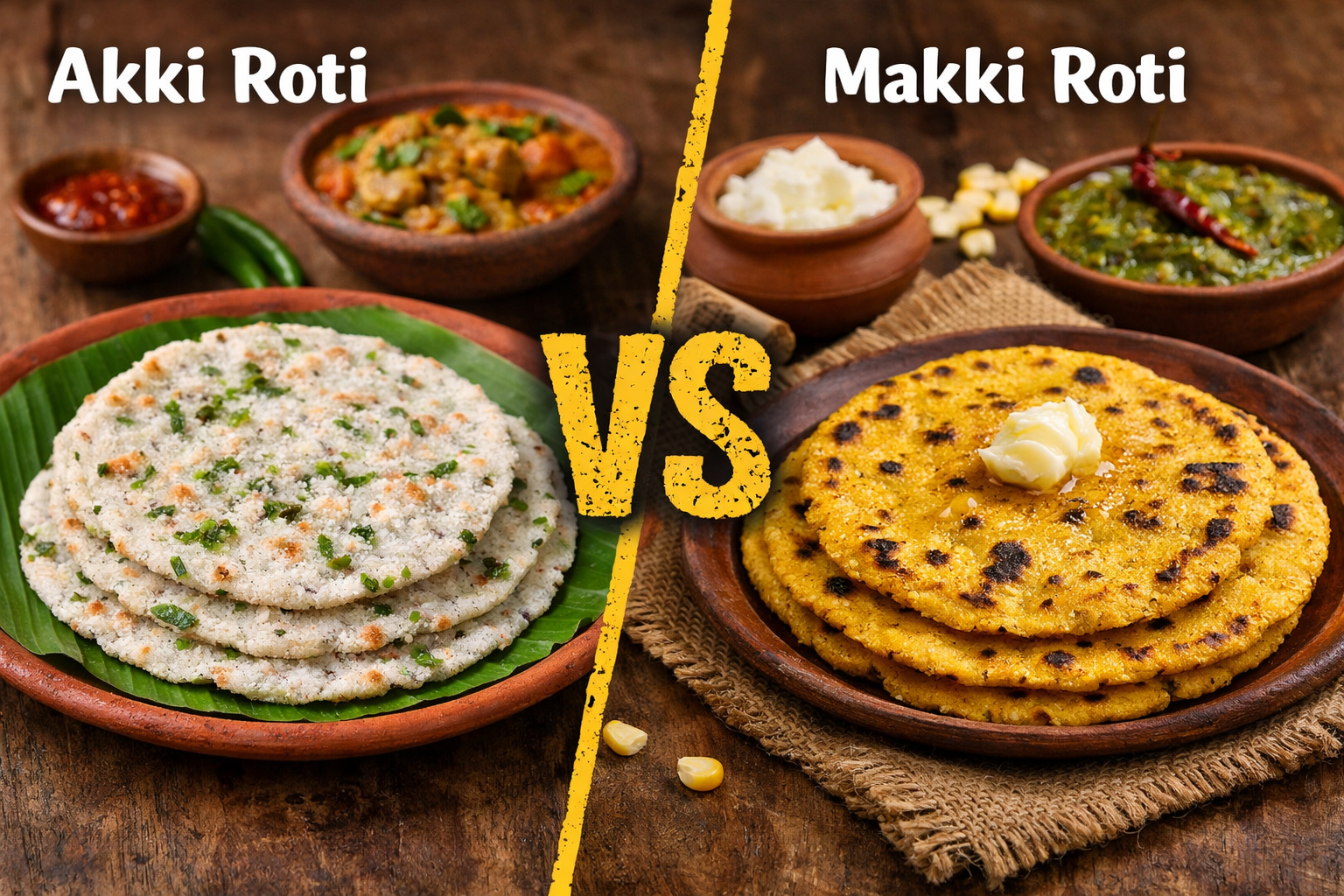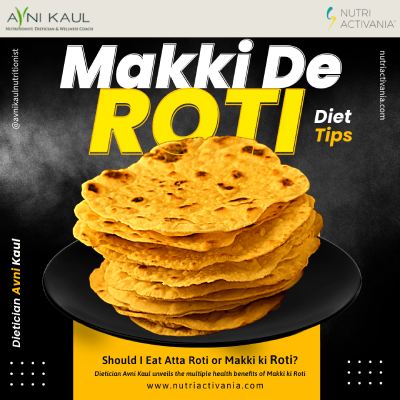Dietician Avni Kaul unveils the multiple health benefits of Makki ki Roti
Atta roti vs makki ki roti is a common confusion for many Indians, especially in winters. In this article, Delhi’s leading dietitian and nutritionist Avni Kaul explains the key health differences and helps you decide which roti suits your body and goals better
Come winter and our taste buds crave the warmth of hot jalebis or crisp pakoras (fritters) paired with a steaming cup of tea. While these comfort delights are undeniably delicious, they sneakily add up on the calorie count and aren’t exactly our healthiest allies. Why not try makki (maize flour) ki roti (flatbread) instead? In India, where rotis made from wheat flour are a household staple, the shift to Atta Roti vs makki ki roti is gaining popularity for its numerous health benefits. To shed light on the nutritional advantages of makki ki roti and how it can help you stay healthy and fit this winter, let’s delve into insights shared by leading nutritionist and Dietician in Delhi Avni Kaul.
What will you expect to gain by swapping roti made of atta with makki?
- Vitamins and Minerals
Makki ka atta, or maize flour, a winter staple in Northern India, is derived from corn and is a nutritional powerhouse. Packed with essential vitamins A, C, K, and B, as well as minerals like iron, phosphorus, zinc, and antioxidants, this fibrous flour aids in blood sugar control. Its high fiber content promotes gradual blood sugar release, supports digestion, and contributes to overall gut health.
- No Gluten
Makki ki roti, made from maize flour, is an ideal choice for those with gluten and lactose intolerance. A great alternative to wheat chapati, it caters to gluten sensitivities and celiac disease, providing a flavorful and textured option. Avni Kaul highlights its inclusivity for gluten-related concerns, ensuring everyone can enjoy a warm, comforting meal. Additionally, gluten-free diets are linked to enhanced digestion and heightened energy levels.
- Blood Sugar Control
The lower glycemic index of makki as compared to wheat flour or atta aids in stabilizing blood sugar levels. Its fibrous nature ensures a gradual sugar release, preventing sudden spikes and promoting sustained energy. This is vital for managing winter sluggishness, as stable blood sugar levels help avoid energy fluctuations.
- Pregnancy Benefits
Maize flour is a vital source of folic acid, crucial for pregnant women and new mothers, and preventing nutrient deficiencies. Packed with beneficial nutrients like pathogenic acid, zeaxanthin, and folic acid, corn safeguards against birth abnormalities, ensuring the well-being of both mother and baby. Its consumption during pregnancy supports the development of a healthy embryo, guarding against physiological issues and muscle degeneration.
- Healthy Heart
Makki ki roti is naturally low in saturated fat, and high in fibre which helps to lower cholesterol levels and keeps your heart healthy.
- Weight Management
Makki ki roti, being made from maize flour, is inherently rich in dietary fibre. Fibre plays a crucial role in promoting digestive health, preventing constipation, and keeping you feeling full for longer periods. This is particularly beneficial during winters when the temptation to indulge in calorie-laden snacks is high. Thus, it helps to keep your weight in control. The shift from atta to makki ki roti holds tremendous health benefits, making it a wise choice for winter nutrition. From aiding weight management to promoting heart health, this simple switch can contribute to your overall well-being. So, make it a part of your winter diet. After all, what is winter without hot makki ki roti and sarson ka saag?



